The U.K.’s campaign to overthrow the Assad regime provides key background to understanding Whitehall’s approach to Hayat Tahrir al-Sham, writes Mark Curtis.
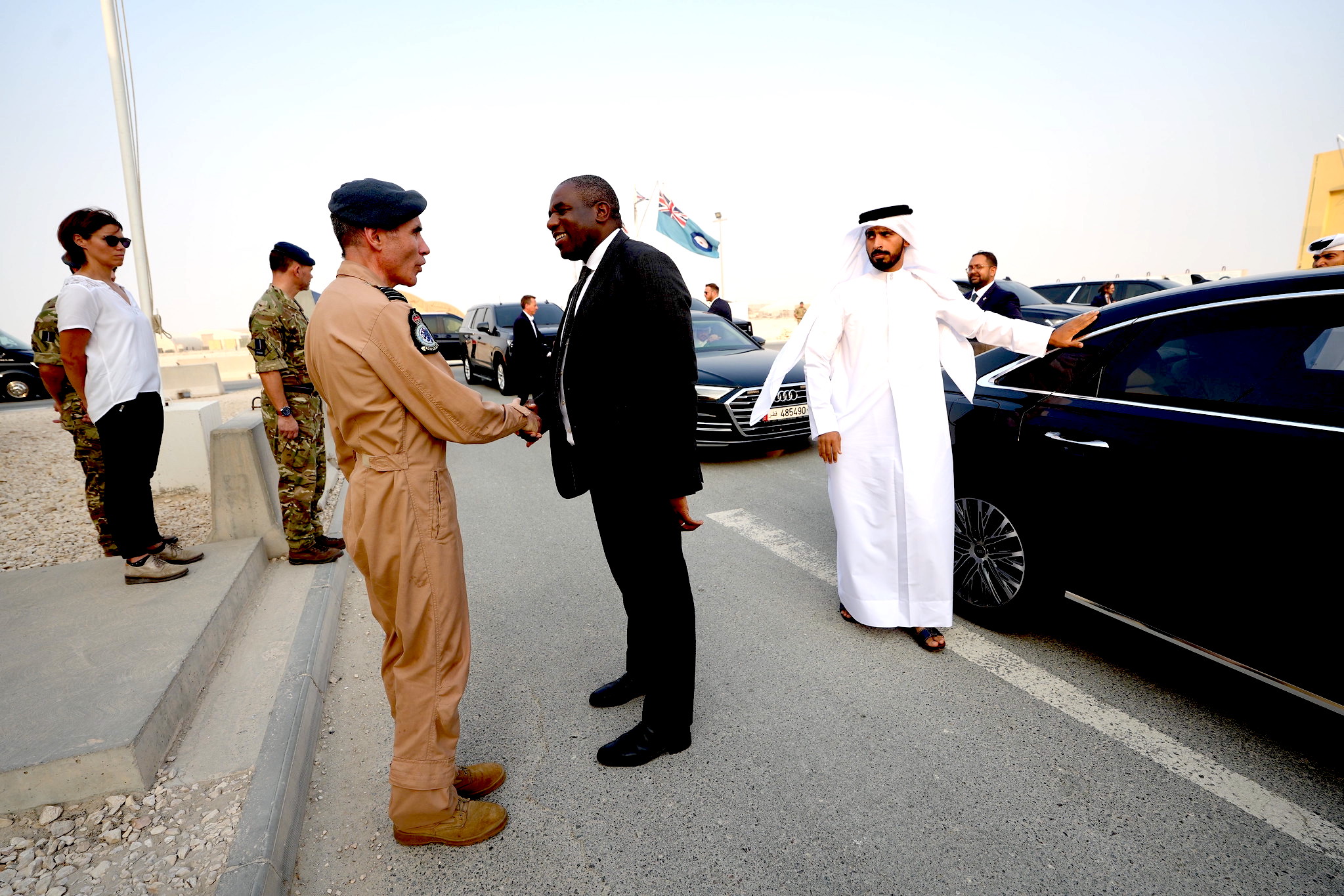
U.K. Foreign Secretary David Lammy on trip to Qatar in July to meet with UK Armed Forces personnel stationed there. (FCDO/Russell Watkins, CC BY 2.0)
By Mark Curtis
Declassified UK
 Beginning in 2011, Britain embarked on a campaign to overthrow the Bashar al-Assad regime in Syria, in cooperation with its key allies the U.S., Saudi Arabia, Qatar and Turkey.
Beginning in 2011, Britain embarked on a campaign to overthrow the Bashar al-Assad regime in Syria, in cooperation with its key allies the U.S., Saudi Arabia, Qatar and Turkey.
Military training and weapons were given to armed opposition forces who were often collaborating with jihadist groups, in effect supporting and empowering them.
One major beneficiary of the secret campaign was Jabhat Al-Nusra, the al-Qaeda affiliate in Syria founded by Abu Mohammed al-Jolani, who later rebranded his militant force as Hayat Tahrir al-Sham (HTS).
Al-Jolani now appears to be the key power-broker in Damascus after the fall of the Assad regime. He has been presenting his “moderate” credentials to the West for some years, with great effect.
Former MI6 chief Sir John Sawers now says that HTS is more a “liberation movement” than a terrorist force, despite being a proscribed organisation in the U.K.
Similarly, Foreign Secretary David Lammy recently told Parliament that while al-Qaeda has killed “hundreds of British citizens in barbaric attacks spanning decades”, HTS has offered “reassurances” and should be “judged by their actions”.
Lammy has said the U.K. is now in “diplomatic contact” with HTS, and photographs have emerged of a Foreign Office delegation meeting al-Jolani in Damascus.
Britain’s campaign in Syria, snippets of which were occasionally reported in the media at the time, is now being largely ignored by that same media.
The U.K. policy of working with whoever to achieve foreign policy goals is once more in evidence, and might again have severe consequences.
Assad’s Brutality
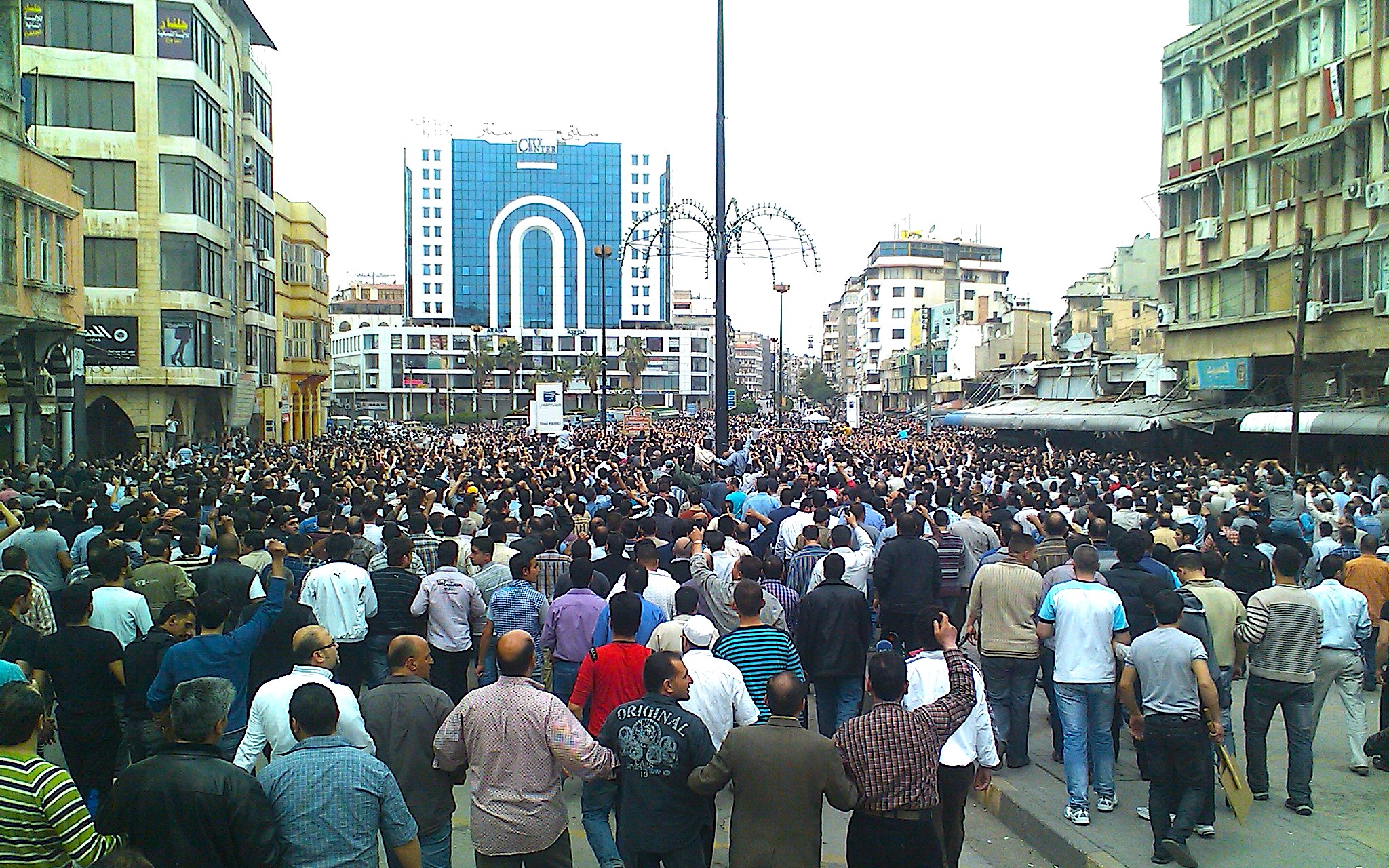
Demonstration in Homs, Syria, against the Assad regime, April 18, 2011. (Bo yaser, Wikimedia Commons, CC BY-SA 3.0)
The Syria uprising, part of the Arab Spring that convulsed many countries in the Middle East, began in March 2011 when popular demonstrations broke out against Assad’s repressive regime.
The Syrian army resorted to violence to try to quell the challenge to its authority, routinely firing into crowds of peaceful protestors and subjecting detainees to torture. Amnesty International soon found that the regime was committing war crimes.
The U.S. and Britain had long wanted to remove Assad to recreate the Middle East. Former French Foreign Minister Roland Dumas said that in 2009 “top British officials” (then working in the Labour government under Prime Minister Gordon Brown) told him they were organising an invasion of rebels into Syria and asked “if I wanted to participate.”
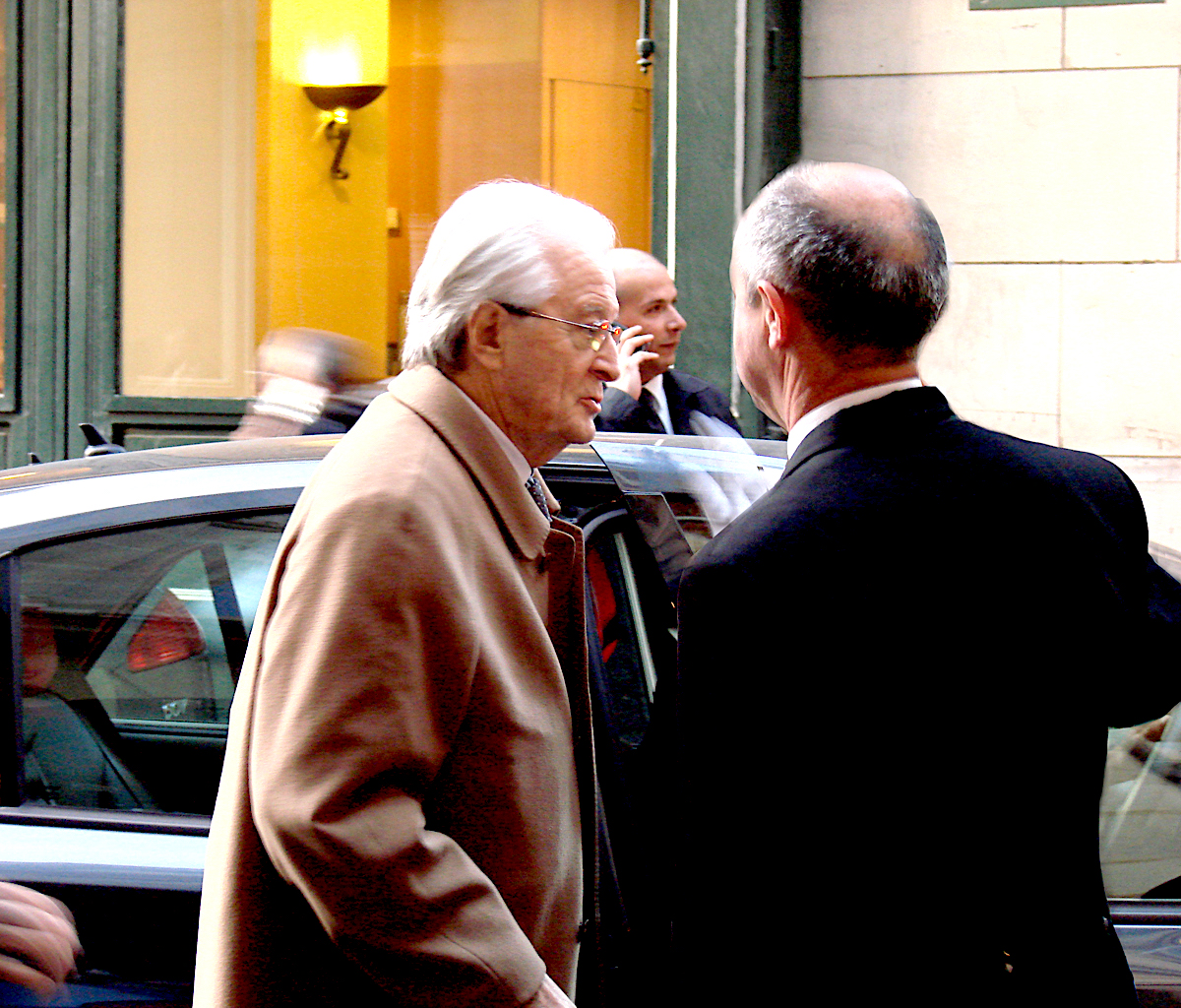
Dumas in 2009. (Jean-Pierre Dalbéra, Flickr, CC BY 2.0)
The U.S. is reported to have spent at least $1 billion in backing the Syrian opposition forces after 2011, with billions more coming from Saudi Arabia and Qatar.
Qatari and Saudi arms went mostly to hardline, extremist groups, certainly in the early years of the war, known to officials in Washington and London. The Obama administration was warned by advisers as early as November 2011 that Syria’s armed opposition had been infiltrated by Al-Qaeda in Iraq, for whom Al-Jolani was then fighting.
Arms Supplies
By late 2011, arms and hundreds of fighters from Libya were being sent to Turkey, reportedly by NATO forces, for use in Syria by the Free Syrian Army (FSA), a group opposed to Assad which was formed in August 2011 by army deserters.
Britain’s MI6, along with French special forces, were said to be on the ground assisting the rebels in Syria while the C.I.A. was providing communications equipment and intelligence.
British forces were talking to Syrian dissident soldiers, wanting to know what training, weapons and communications equipment the rebel forces might need. A French military intelligence source said that the operation, which was authorised by NATO, envisaged training the rebels in “urban guerilla warfare.”
Please Support CN’s
Winter Fund Drive!![]()
The following year, huge deliveries of weapons were made by the Qatari air force via Turkey. U.S. journalist Seymour Hersh noted that “many of those in Syria who ultimately received the weapons were jihadists, some of them affiliated with al-Qaida”.
It is believed that Qatar was pouring weapons and cash into al-Nusra. One diplomat from a country in the Middle East quoted by The Telegraph said that: “They [Qatar] are partly responsible for Jabhat al-Nusra having money and weapons and everything they need”.
UK Training
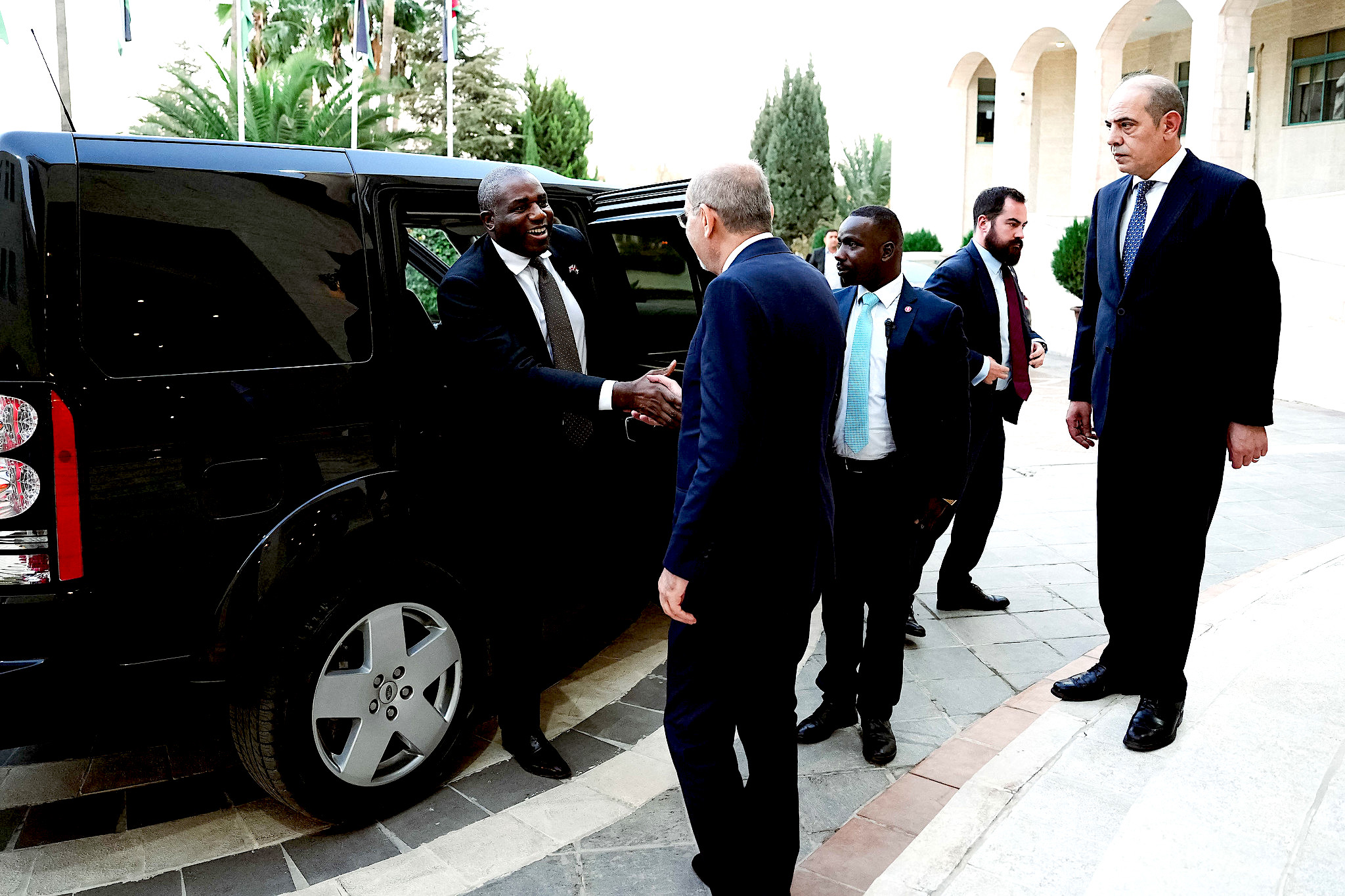
Lammy meeting with Jordan’s Foreign Minister Amman Safadi in September. (Ben Dance / FCDO, CC BY 2.0)
British training of rebels at bases in Jordan to fight Assad was authorised around this time. The training was reportedly of both the Jordanian military and senior Syrian army defectors, presumably those now grouped in the Free Syrian Army.
By August 2012, at least, Britain’s military and intelligence base in Cyprus was also passing on intelligence to the FSA through Turkey. By this time, British special forces in the SAS and SBS based in Jordan were reported to “likely” be slipping into Syria on missions.
Britain was also providing Syrian rebel groups with the latest generation of satellite phones to aid communications and coordinate military operations.
The U.K. training of opposition forces was part of a U.S.-led programme that went on to instruct thousands of FSA rebels.
Moderates & Jihadists
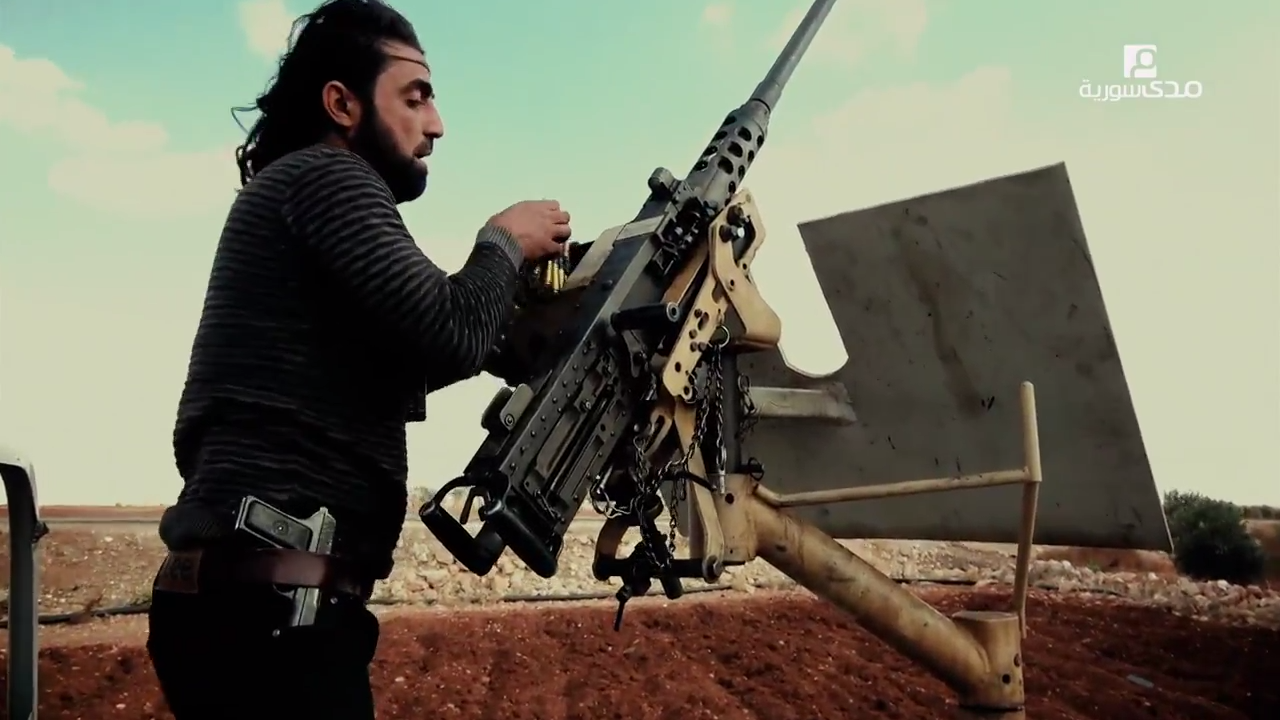
Free Syrian Army fighter loads an M2 Browning during the fighting in northern Aleppo Governorate, November 2016. (Mada Media, Wikimedia Commons, CC BY 3.0)
The U.K. government, often helped by media reporting, portrayed the FSA as moderate, often secular forces, as opposed to the extremist and jihadist groups which by now were widely reported to be dominant in the Syrian war.
The FSA consisted of a loose coalition of different factions, including more moderate, secular units and forces. However, several FSA factions ended up joining Islamic State and handing over their weapons. Many of those who joined had received Western training.
The British-backed FSA had an even closer relationship to al-Nusra. The BBC’s Paul Wood reported in 2013 that “the FSA is so close to Nusra it has almost fused with it”.
A former U.S. Green Beret (special forces), Jack Murphy, noted that “distinguishing between the FSA and al-Nusra is impossible, because they are virtually the same organisation”. He added: “The reality is that the FSA is little more than a cover for the al-Qaida-affiliated al-Nusra”.
As early as 2013, FSA commanders were defecting with their entire units to join al-Nusra. The FSA collaborated regularly with al-Nusra on the battlefield throughout the conflict.
Arms ‘Walmart’
Former MI6 officer Alastair Crooke noted at the time that “the West does not actually hand the weapons to al-Qaida, let alone ISIS but the system that they have constructed leads precisely to that end.”
He added:
“The weapons conduit that the West directly has been giving to groups such as the Syrian Free Army [sic] have been understood to be a sort of ‘Walmart’ from which the more radical groups would be able to take their weapons and pursue the jihad.”
In November 2012, the U.S. coordinated a massive airlift of some 3,000 tonnes of arms to the FSA from Croatia with the help of Britain and other European states, paid for by Saudi Arabia.
Lord Paddy Ashdown, the former Liberal Democrat leader, later said that the massive quantity of arms went “almost exclusively to the more jihadist groups”.
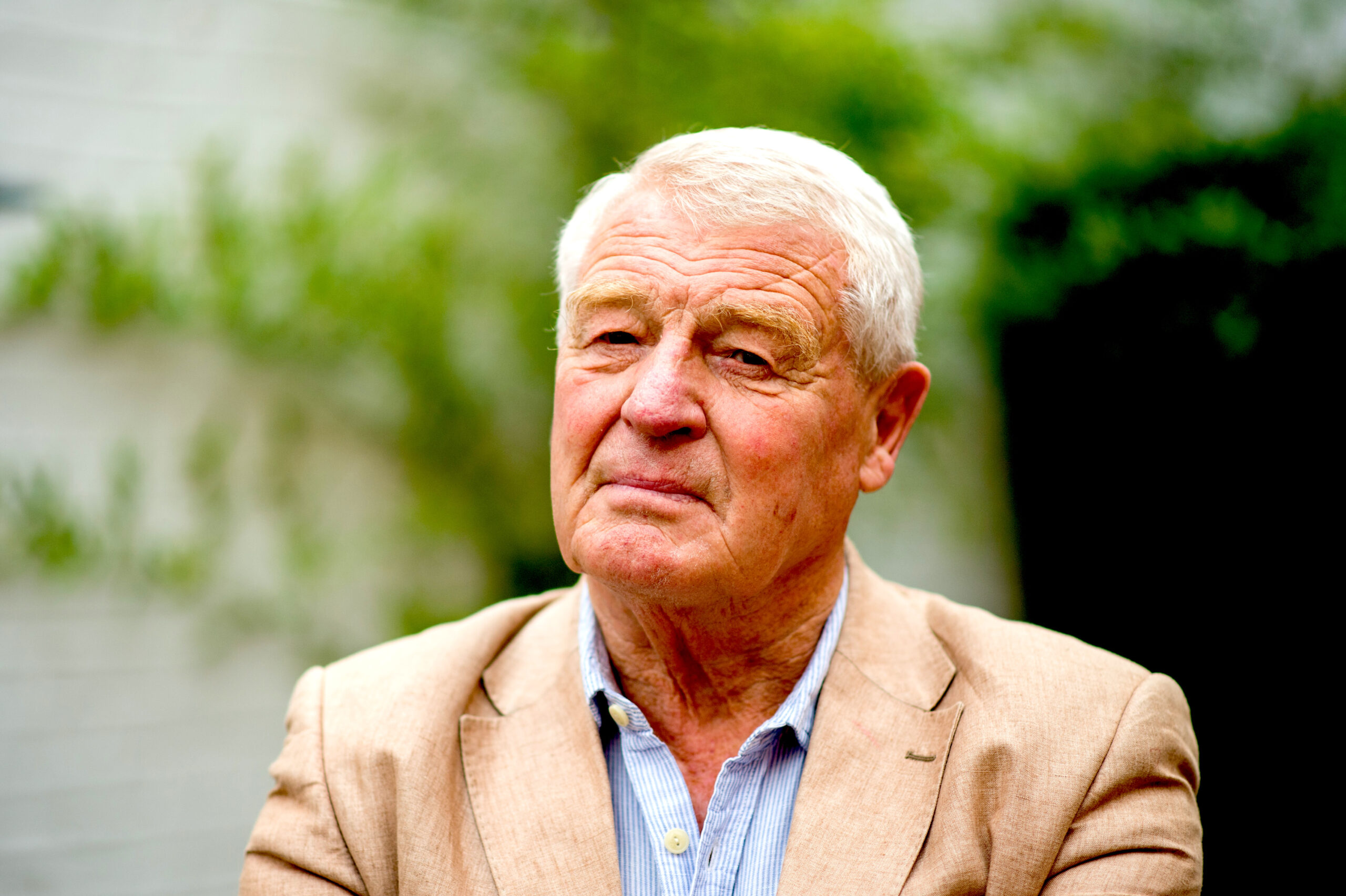
Ashdown in 2016. (James Gifford-Mead, Wikimedia Commons, CC BY-SA 4.0)
By April 2013, the U.S., with British backing, launched what became Washington’s major covert programme to furnish arms and training to supposedly “vetted” Syrian opposition groups — a covert C.I.A. operation authored by President Barack Obama codenamed Timber Sycamore.
Britain provided officials for the operations rooms in Turkey and Jordan to help manage the programme, which funnelled arms such as anti-tank missiles and rockets to a number of opposition groups.
Once again, many of these weapons found their way to Islamic State and al-Qaeda, sometimes being traded on the black market. Obama later said that C.I.A.-supplied weapons ended up in the hands of “al-Qaeda,”presumably a reference to al-Nusra.
In October 2014, Obama’s Vice President Joe Biden noted that Saudi Arabia and Turkey “were so determined to take down” Assad that they
“poured hundreds of millions of dollars and tens of tons of weapons into anyone who would fight against Assad – except that the people who were being supplied were al-Nusra, and al-Qaida, and the extremist elements of jihadis who were coming from other parts of the world.”
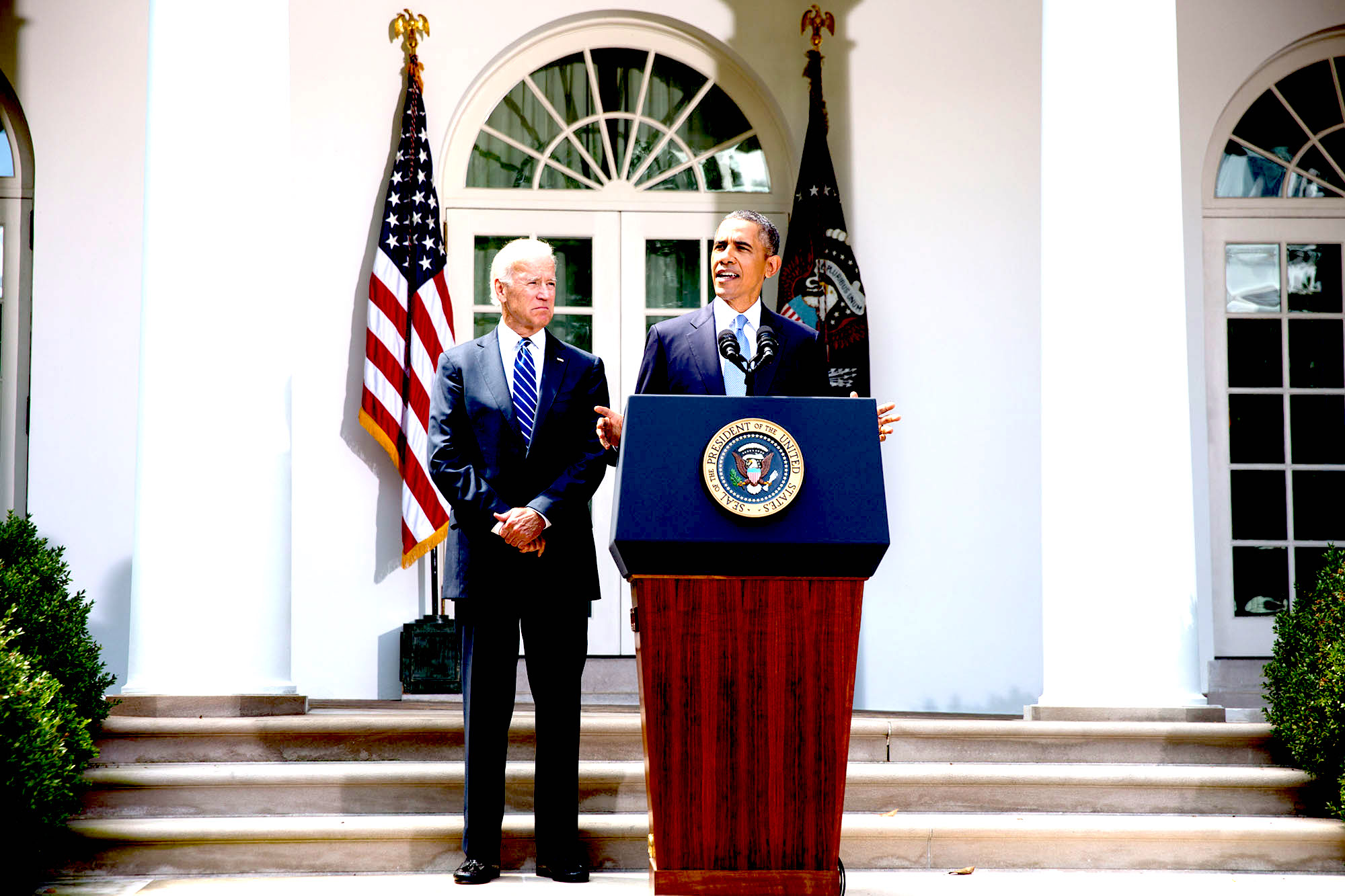
Obama making a statement on the situation in Syria, with Biden beside him, at the White House on Aug. 31, 2013. (Official White House Photo by David Lienemann)
FSA & Al-Nusra Coordination
A key period of collaboration between the British and allied-backed forces, the jihadists and others occurred in March-May 2015.
In a moment of the war that set back the Assad regime, a coalition of insurgent fighters captured the north-western city of Idlib and won a series of key victories elsewhere in the governorate.
The operations were the result of coordination between the FSA, al-Nusra, conservative Syrian Islamists and independent jihadist factions.
Crucially, it was the U.S.-led operations room in southern Turkey involving British officials, which coordinated the arms flow to the FSA groups and encouraged cooperation with the Islamists commanding frontline operations.
In May 2015, Britain sent 85 troops to Turkey and Jordan to train rebels to fight both Assad and, now, Islamic State as well. Joining a U.S.-led programme, the aim was to instruct 5,000 Syrian insurgents a year over the next three years.
Within four months, however, the Pentagon reported that the trained rebels, now operating in Syria, had been forced to hand over ammunition and equipment to al-Nusra, purportedly in exchange for safe passage; the vehicles and ammunition lost represented about 25 percent of the equipment issued to the group by the U.S.-led coalition.
Two years on, and it was largely the same story.
In March 2017, the now rebranded HTS initiated an assault near the city of Hama in collaboration with the FSA. One report noted that al-Nusra allowed the FSA to operate in Hama and Idlib because the FSA groups there get anti-tank weapons from the West and the “FSA uses these… in support of Nusra”.
Consequences
Thus for several years the U.K. and U.S. continued to undertake training and help send arms into Syria despite the certainty that these would also benefit jihadist forces, even though Britain was not focused on directly supplying them.
The policy of Britain and its allies had, along with the brutality of the regime in Damascus, the effect of prolonging the war, and contributed to Syria’s refugee crisis, for which the Western media almost universally blamed Assad alone.
Syria’s political situation currently remains unclear and is potentially volatile as armed groups, ethnic and political factions and foreign powers, all seek to exert their influence.
Who will U.K. officials work with now to promote their goals? It is more than possible that the U.K. establishment’s desire to achieve a pro-Western government in Syria at all costs, could continue to have major consequences for the people of Syria.
Mark Curtis is the director of Declassified UK, and the author of five books and many articles on U.K. foreign policy.
This article is from Declassified UK.
Views expressed in this article may or may not reflect those of Consortium News.
Please Support CN’s
Winter Fund Drive!![]()
Make a tax-deductible donation securely by credit card or check by clicking the red button:


What’s in a name change?
The nation state of Great Britain has always been a usurper of its ill-gotten global colonial holdings.
Of course extremists ended up dominating the Syrian opposition forces. Extremists, pretty much by definition, think their cause is worth years of war and mass deaths. Moderates don’t.
The U.S. and Britain had long wanted to remove Assad to recreate the Middle East. Former French Foreign Minister Roland Dumas said that in 2009 “top British officials” (then working in the Labour government under Prime Minister Gordon Brown) told him they were organising an invasion of rebels into Syria and asked “if I wanted to participate.”
*
Abu Mohammed al-Jolani may as well be described as the Syrian/2024’s version of Juan Guaido, who most will recall was the “random guy” from Venezuela – of whom United States officials and the Donald Trump administration had the supreme arrogance to name/designate the new president of Venezuela.
Imagine the immense legal hot water your average, everyday citizen would have to endure if he/she hired mercenary killers to murder tens or hundreds of his/her neighbors. Such is not the case for government officials who devise, advocate, and “successfully” carry out covert plans where mercenary killers are paid, fed, armed, transported, provided training and logistical support etc.; such behind-the-scenes criminal wars of aggression operators rarely, if ever, find themselves in immensely hot legal water.
The UK is a “partner” of vassal of Washington but has a long tradition of skullduggery in foreign affairs with skilled covert operatives and, of course, the SAS and other elite units to make life for the world as nasty as possible. The whole point of all this is that Washington and friends want to completely dominate every square millimeter of the planet and they will do whatever it takes to do that–killing millions, torturing, assassinating and probably, if they knew how, making a deal with Satan to achieve their goals. All this to fulfill the European dream of a new Roman Empire (they finally dispensed with the “Holy” as is appropriate.